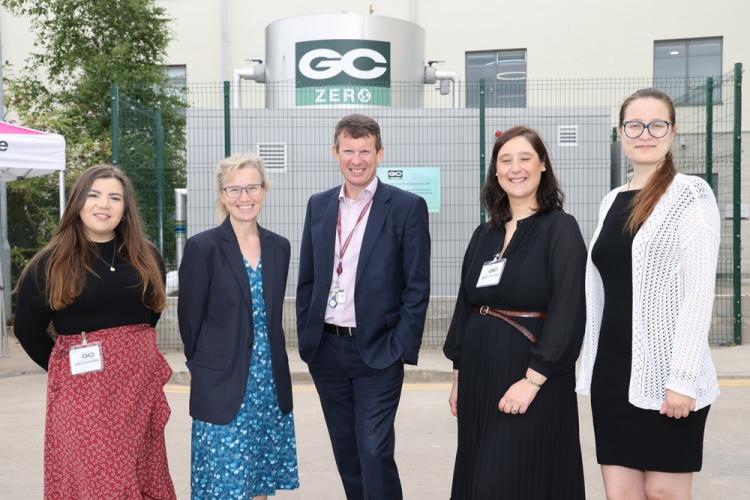University and college in Gloucestershire save tonnes of carbon thanks to grant

A ceremony marking Gloucester College’s success in becoming the first college in the country to switch to 100 percent renewable energy after recently completing transformative energy efficiency works took place on Friday 22 July.
The multi-million-pound investment, supported by Salix, has transformed Gloucester College enabling it to deliver savings on its energy bills worth more than half a million pounds a year, which is particularly salient given the sharp rise in energy prices.
The £5.5 million installation of solar panels, building systems and ground source heat pumps came from a £2.8 million investment from the Public Sector Decarbonisation Scheme, and £2.7 million from the college. It will deliver annual savings of at least £400,000 and generate an income of £120,000 from energy it will be able to sell back into the national grid.
Gloucester College students marked the event by burying a commemorative GC zero time capsule on campus, which included records of their hopes for the future, with a plaque unveiled by Gloucester MP, Richard Graham.
Attendees at the ceremony included representatives from the Department for Energy Security and Net Zero (former the Department for Business, Energy and Industrial Strategy), Salix, project partners Hillside Environmental Services and Integral, The Alliance for Sustainability Leadership in Education (EAUC), Gloucestershire County Council, alongside other partners, supporters, college staff, students and governors.
Over the next 25 years, the college expects to see carbon reductions of 6.5 million kilograms and reduce its carbon footprint by 63 percent over the next year.
Salix staff also toured the University of Gloucestershire’s Gloucester and Cheltenham campuses, including the former Debenhams store in Gloucester city centre which is being transformed into a university teaching and learning centre.
The Public Sector Decarbonisation Scheme provided a £1.2 million grant to the university to replace gas boilers with air source heat pumps at Oxstalls Halls of Residence and Francis Close Hall (FCH) Principal’s House and the grade II listed Chapel at FCH, cutting carbon associated with heating its campuses.
The new heaters will save around 578,000 kW/h of gas every year, the equivalent of about 117 tonnes of CO2. In addition, the project has enabled better control of the university’s plant and equipment, reducing its energy consumption further still, equivalent to saving around 143 tonnes of CO2 annually. The heating upgrades represent a 19 percent reduction in emissions putting the university on the road to reach its net-zero goals by 2030.
Elise Sharpe, Programme Coordinator, University and College team, Salix, said: “We are delighted to see such incredible carbon reduction works taking place at the college and university and how this work is reducing energy consumption across their campuses making a major contribution in meeting their net zero goals.”


